Showing posts sorted by relevance for query the prisoner of zenda. Sort by date Show all posts
Showing posts sorted by relevance for query the prisoner of zenda. Sort by date Show all posts
Friday, May 25, 2018
THE HENCHMEN OF ZENDA by KJ Charles (2018) - A not forgotten or overlooked book.
And now for something a little different.
This is not a forgotten or overlooked book really since it's just newly published, but I'm writing about it anyway since this author has been overlooked by yours truly until just recently. Truth be told, I stumbled on the work of KJ Charles on Kindle while looking for Regency romances (I do get in the mood for a good romance now and again and I'm mad about historicals.) I had no clue then that Charles has made a kind of niche for herself writing imaginative, non-traditional historical romances featuring gay heroes. Also I had no clue that she was an exceptional writer with the gift of making the reader care about her characters.
Though some of her stories are set in Regency England when homosexuality was punishable by hanging, this particular book takes place in Victorian times - when homosexuality was punishable by imprisonment and/or other indignities - certainly not as bad as being dead, but really. So in a way, these are kind of wishful fairy tales (yeah, couldn't help myself) with requisite happy endings but wonderfully - if frankly - written and thoroughly engaging. Between the beginning and the happy ending, though, are enough dramatic entanglements to keep anyone entertained for a couple of hours. I found myself really enjoying several of Charles' books. Who knew?
However if you object to the depiction of romantic tales of costumed gentlemen and knaves who happen to be gay, and or, for that matter depictions of sex (gay or otherwise), then please move on about your business and don't bother reading my review or voicing your objections. Certainly there are plenty of other terrific books out there for all of us to read and talk about. I understand that not everyone can be as broadminded as moi - though I often wonder why not. But I digress, as usual.
At any rate, THE HENCHMEN OF ZENDA is a devilishly good if atypical example of this genre or niche or whatever you want to call it. In this case, Charles has done something clever and in many ways, impressive. She has upended the famed Victorian potboiler THE PRISONER OF ZENDA by Anthony Hope and retold the entire story from an opposite point of view, peppering the tale with two incredibly dashing protagonists who just happen to lust after each other in a very manly and steamy way. Both men are characters who appeared in the original novel and apparently sparked Charles' imagination: one is Rupert of Hentzau and the other is a minor character named Jasper Detchard, an itinerant henchman. Both are soldiers of fortune who work for the evil Michael, Duke of Streslau, wicked brother of Rudolf, Crown Prince of Ruritania. All the characters from the original tale are here, but looked at with different and very jaded eyes.
(As an aside: Hope himself wrote a sequel titled RUPERT OF HENTZAU. The Zenda story continued from yet another point of view. But omitting any hint of male cupidity.)
If you've seen either of the splendid ZENDA movies, the one starring Stewart Granger and Deborah Kerr (1952) and the other starring Ronald Colman and Madeleine Carroll (1937) then you already know the official story. Link here to read my review from a few years ago, of the ZENDA movies.
And if you've read the Anthony Hope book (a short read of an evening and fun to boot) then you're that far ahead. BUT, you need not have read the original at all to enjoy THE HENCHMEN OF ZENDA, in that case, just read it as a sexy, entertaining swashbuckling standalone.
P.S. And let's not forget Princess Flavia who in this instance is more a presence, even behind the scenes, than anyone bargained for. Is Rassendyll in for a surprise? I can say no more.
Itinerant henchman Jasper Detchard (who was killed off in the original story by Anthony Hope) has lots to say in Charles' version:
"When I read a story, I skip the explanations; yet the moment I begin to write one, I find that I must have an explanation.
This is Rudolf Rassendyll's introduction to his swashbuckling tale of intrigue, love, treachery, cold-blooded murder, and hot-blooded men. His account, privately circulated, has become the accepted truth amongst the few privileged to read it. It is a story of courage in the dark, honour in the teeth of love, nobility above all. It gives us a beautiful, passionate princess, a man who renounces love and crown for the sake of a greater and purer cause, and a villain - such a villain.
Rupert of Hentzau: reckless and wary, graceful and graceless, handsome, debonair, vile, and unconquered. Rupert flees the pages of Rassendyll's story a thwarted monster, never to be seen again; Rassendyll retires from the field with honour unstained' and the true King of Ruritania reigns in Streslau.
What a pile of shit.
My name is Jasper Detchard, and according to Rassendyll's narrative I am dead. This should give you some idea of his accuracy..."
This eye opening beginning of THE HENCHMEN OF ZENDA sets us up the rest of this clever, captivating, salacious but boisterously charming tale of derring-do and Victorian chicanery in a mythical country called Ruritania. This is, of course, one of those prickly little kingdoms which may be had for the taking by feckless good-looking, lusty villains who risk life and limb for a paycheck and the keen adventure of it all. Not a typical romance type story, but more an adventure with an ending that makes sense.
I enjoyed this book more than I thought I would, but then I'm a big fan of Hope, Rafael Sabatini, Baroness Orczy and John Buchan. K.J. Charles gets the tone and the period and the characters just right. (Though occasionally her language is a bit too modern day, but not jarringly so.) Jasper Detchard is not your mom's nice guy hero, but (despite Rudolf Rassendyll and Anthony Hope) a hero nonetheless. And we even wind up feeling an inchoate affection for the handsome thug.
I don't recommend this book to everyone, just to those curious enough to want to read something a little different now and then because why the heck not?
This review from THE SEATTLE REVIEW OF BOOKS of THE HENCHMEN OF ZENDA spells it all out better than I can. I'm glad KJ Charles' books are getting this kind of attention.
Since it's Friday once again, don't forget to check in at author Patricia Abbott's blog, Pattinase, to see what other forgotten or overlooked books other bloggers are talking about today.
Illustration by Charles Dana Gibson to the frontispiece of the original 1898 MacMillan publication of THE PRISONER OF ZENDA.
Tuesday, December 14, 2010
A Favorite Film: The Prisoner of Zenda

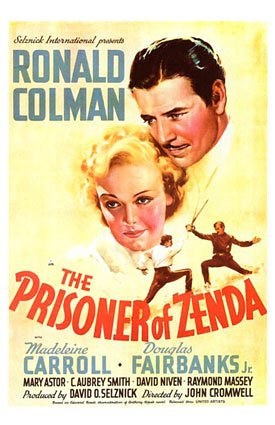


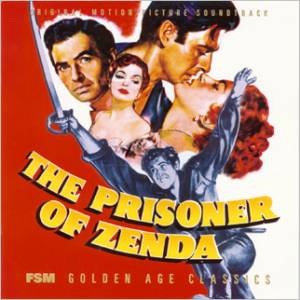

 This is a new Tuesday category for me, begun last week: A Favorite Film. Down the road I hope we'll discuss all sorts of Favorite Films. Hopefully, some of them will be favorites of yours as well. If you'd like to treat this as a 'meme' please feel free to use my 'badge' up top and post your own Favorite Films on Tuesdays and we can link up the posts.
This is a new Tuesday category for me, begun last week: A Favorite Film. Down the road I hope we'll discuss all sorts of Favorite Films. Hopefully, some of them will be favorites of yours as well. If you'd like to treat this as a 'meme' please feel free to use my 'badge' up top and post your own Favorite Films on Tuesdays and we can link up the posts.Today's post is actually about TWO favorite films, both named THE PRISONER OF ZENDA. (From the novel by Anthony Hope.) I just couldn't decide which one I liked best, the Stewart Granger (1952) or the Ronald Colman (1937) version. I truly do love them both and can watch them anytime. I recommend seeing both if you get a chance or have the inclination.
The Granger version is, of course, in glorious Technicolor (the best film color ever in my personal opinion) with Granger and his co-star Deborah Kerr (who was born for Technicolor) showing to their best advantage. I was always in a swoon over Stewart Granger in these sorts of rolls anyway. I mean, who can forget: KING SOLOMON'S MINES (also with Kerr as co-star) and SCARAMOUCHE (those incredible black and white tights!), all in blazing color. Sigh...!
Watch the PRISONER OF ZENDA trailer and see if you don't agree. The IMDB site has this listed as being the Ronald Colman trailer, but it's not. It's the Stewart Granger trailer. Unfortunately, I couldn't find one for the Colman film. But here's a video I found on youtube of the first eleven minutes of the Colman film.
The Ronald Colman version has, of course, his unruffled, startlingly royal looking persona and that voice, that incredible speaking voice unlike any other. It has Madeleine Carroll as his leading lady. (She's all right, I'm not that crazy about her since she behaved so abominably towards Robert Donat in The 39 Steps.) This film also has an amazing cast: David Niven, Douglas Fairbanks, Jr., Raymond Massey, C. Aubrey Smith, Mary Astor - I did say amazing.
The Stewart Granger version has James Mason, Louis Calhern, Lewis Stone, Jane Greer - not as distinguished a cast as the earlier film, that's for sure. Although they all acquit themselves very well. Okay, so in casting, the Ronald Colman film is the winner. Now that I'm thinking even more about both films, I'm picking the Colman version as the all around best one. Though, as I said, I recommend watching both.
THE PRISONER OF ZENDA is a fabulous, over-the-top tale of love, duty, sacrifice and honor -all the good stuff. (It would make a great opera.) All the things that, perhaps, seem a bit old school in today's world. But once-upon-a-time, men and women actually gave and kept their word, loved with deep devotion and sacrificed for the sake of honor.
Here's the story in a nutshell in case you're not familiar with it: The hero, Major Rudolph Rassendyll (That's his name, not much I can do about it.) is on a walking tour of the Principality of Ruritania. There he is mistaken for the King of Ruritania (I like saying the name.) who has disappeared, unknown to the general populace. It turns out he (the king) has been drugged and kidnapped so his brother (if I remember correctly) or first cousin can be installed as king in his place. It also turns out that Rudolph looks EXACTLY like the King who, by the way, is a wastrel and unworthy of the beautiful princess Flavia whom he is to marry.
Anyway, you guessed it: Rudolph is hooked into a daring plan. He is asked to impersonate the King at least until the actual King can be found and convinced to behave himself like the monarch he is. Long story short: Rudolph is successful in his impersonation, so successful that the Princess Flavia falls in love with him -he is, after all, in character and deportment, everything the REAL king is not - so one can hardly blame her. Rudolph, of course, falls in love with the princess - an impossible situation.
In the meantime, there's a desperate search on for the 'real' king which involves secret plots, lots of derring-do, swash and buckle and fights to the death. The conspirators, you see, KNOW that Rudolph is not the real king, but they can't let on lest they be revealed as KNOWING what has happened to the real king. Great stuff. How all this is resolved is thrilling fun to watch and enjoy.
My favorite bit of dialogue comes at the end: One of the king's men who has been helping Rudolph carry out the impersonation, says goodbye with this incredible line and a bow, "Sometimes fate makes the wrong man King." Sigh. I LOVE that line!
You must, of course, suspend your disbelief while watching movies of this sort but I've always believed that that was what movies were about anyway: suspending our disbelief and being transported to another time and place. (This is why the older films have such a special spot in my heart.) There's enough ugly reality online and in the newspapers, thank you very much.
Friday, June 24, 2016
Friday Forgotten (or Overlooked) Book: THE HOUSE OF THE FOUR WINDS (1935) by John Buchan
Sorry guys, I can't be reasonable about these books - when it comes to John Buchan, you could say that I'm close to becoming unhinged (but in a good way). Can't help it. I haven't read all he's written, but the books I have read I've loved and taken to my heart, they are books I will continue to reread as long as I live. You see, I love well-written (if improbable) adventures of long ago - stories that recall a different world where codes of honor and good manners mattered. A world where people still dressed for dinner and occasionally read poetry. (It also doesn't hurt that I've been an anglophile since my teens.)
Before I forget, here's my review, from last year of HUNTINGTOWER just in case you missed it. It's the first book in the Duncan McCunn trilogy.
The three books (HUNTINGTOWER, CASTLE GAY and THE HOUSE OF THE FOUR WINDS) should be read in order so that the recurrence of certain characters (and their personalities and quirks) will have that much more meaning. But it's not the end of the world if you don't. Stay flexible - that's my motto. Though THE HOUSE OF FOUR WINDS is actually the sequel to CASTLE GAY.
Most of you are probably familiar with John Buchan from having seen Hitchcock's early classic THE 39 STEPS based on the first Richard Hannay book. Though the film script made many changes from the novel (there is no woman romantic interest in the book, for example) it has its own delightfully shadowy allure even to this day. The book is rather different, but it also has its own allure. I've read it twice and will read it again along with GREENMANTLE and MR. STANDFAST. Terrific stuff.
These are the sorts of books you either have an inclination for or you don't. The kinds of books I loved as a kid (books I could disappear into) and still love as an old lady. They are definitely of their time, but I don't find that a hindrance at all. If you enjoyed THE SCARLET PIMPERNEL by Bareness Orczy and THE PRISONER OF ZENDA by Anthony Hope and/or the books of Rafael Sabatini, for instance, then you will probably enjoy John Buchan's stories.
The McCunn books were a late find for me (I had only been familiar with Buchan's Richard Hannay books the last couple of years). And now I am incorrigible about recommending them to anyone who likes a good rip-roaring yarn full of adventure and derring-do, books where the good guys win and the bad guys don't. My kind of books. I mean, sometimes you do need a break from the grimness of everyday life.
Duncan McCunn is a retired grocer (with a romantic heart) and the endearing Scottish hero of HUNTINGTOWER, the first book in this trilogy. He jumps into the fray once again, years later when adventure comes calling in the very enjoyable CASTLE GAY, the second in the trilogy. But to my mind, THE HOUSE OF FOUR WINDS stands up even better to HUNTINGTOWER (which I consider to be 'brilliant') and makes for a perfect third installment.
It's years since Duncan McCunn and the Gorbal Diehards (Glaswegian slum boys without whom a princess would not have been saved and a dangerous villain routed) had an unexpectedly splendid adventure in the Scottish Highlands. After which, impressed by their devotion and intelligence, McCunn had taken two of the boys, Wee Jaikie and Dougal(Chief of the Diehards) into his home and raised them as surrogate sons. They are now young men off to make their way in the world.
All are traveling over the summer holidays to Europe from Scotland. Each on his own, but they will meet up at various places on the Continent which of course, accommodates the adventure nicely. Several characters from the second book, CASTLE GAY, will also be along to help as well as a menacing leftover bad guy in need of a strong rebuke.
Duncan McCunn who is feeling elderly aches and pains will be traveling for his health, Jaikie is on a walking tour and Dougal is on assignment for his newspaper.
It is 1935 and two pugnacious factions are gearing up to overthrow the corrupt rulers of the tiny country of Evallonia. The monarchists form one group and 'Juventus', a well-regulated rebellious youth movement (sort of like the brown shirts in Germany, but nicer) form the other. They see the monarchy in the person of Prince John (the rightful King of Evallonia) as nothing more than a puppet leader and not to be trusted. Needless to say, there are some very nasty villains trying to make sure that neither of these groups succeeds in their aims, setting them against each other and generally stirring the pot.
To prevent a blood bath and place good Prince John on the throne will take all the amateur skill and ingenuity first evinced in HUNTINGTOWER by McCunn and his 'diehards' not to mention the skill and heroics of friends met along the way - the novel is told from several points of view and doesn't suffer in the least from this since John Buchan handles it all skillfully. The last third of the novel is as exciting as just about anything I can remember reading. (Which isn't saying a lot because my memory is not what it once was, but you get my drift.) The beginning is rather slowish and a bit meandering, but stay with it. I did. It soon picks up speed and you'll be off on a grand adventure. Hold on to your hats - because there will even be a Prince in disguise!
Needless to say, there are plot machinations galore and a bit of a love story (involving darling Jaikie whom we've come to have great affection for over the three books) as all the links are finally woven together in an expert way - though I might add that the story-line does require that you pay attention. It's all in the mind-set, you know. If you're in tune, you'll love all this as much as I did. If you're not, you won't.
What can I say? I'm not sensible about any of this.
And since it is Friday, we usually check the FFB links at Patricia Abbott's blog, but this week Todd Mason is doing hosting duties later on today at Sweet Freedom.
Thursday, June 9, 2011
Ode to A Pencil Thin Mustache
Okay, I admit it, those idiosyncratic pencil mustaches are an acquired taste. No actor worth his salt would dare have one today. (At least none that I can name off the top of my head.) He'd be laughed off the red carpet. When you do spot a little furry line under an aquiline nose, above sultry etched lips, you think: must be for a movie role. Yup. These little attention getters have definitely gone out of fashion. Let's face it, a pencil thin mustache goes with slicked back hair, a sleek pin-striped suit and a nice pair of correspondent shoes but maybe not so much with t-shirt, baggy shorts and flip flops.
Although Johnny Depp could probably carry that look off. (I think he could probably carry anything off. Reason why I'm thinking he will make something special of THE THIN MAN once they find the right person to play Nora. The trick to playing period, I'm convinced, is to appear as if you are NOT playing period. To look as if this is naturally how you dress. No matter what is called for, you must appear as if this your every day way of dressing. I'm convinced if you master that, you can wear anything on screen. Reason why it all works for Depp.)
I pine. I pine for the tonsorial splendor ot the 1930's and 40's. Back then, a pencil thin mustache could belong to the most dastardly of sleazy villains or the most dapper of dashing heroes. The pencil thin showed no favorites though it did, in certain cases, show a marked preference for the sneer. And of course, dark hair was essential. I mean, a blond pencil thin mustache had no drama, no oomph, no exclamation, no 'look at me' intent.
Back then, who had the best examples of pencil thin panache? Feast your eyes on the following:
Gilbert Roland. The most elegant of Latin screen legends. Not quite a major star. But not quite a nobody either. He was, to my way of thinking, the man who never aged. In fact, as the years passed, he only got better and better looking.Obviously he'd found the fountain of youth and took a sip or two.(Or he kept a portrait up in the attic which did his aging for him.) And far as I know, he always kept his mustache.
William Powell. Remembered for his insouciant portrayal of Nick Charles in THE THIN MAN movies. He was born to play the dashing, dapper, martini guzzling, wise-cracking detective opposite Myrna Loy as his lucky, indulgent wife, Nora. If he ever shaved his lip, I don't remember it.
Robert Donat. One of the few actors who looked just as good without a mustache as with. Though he did appear a bit more dapper with. Remembered most, I suppose, for his role as an innocent man on the run from a bunch of dangerous spies AND the cops in Hitchcock's early classic, THE 39 STEPS, a film in which Donat was the epitome of cool under pressure.
Clark Gable. The King. A super star who basically kept his sexy take-charge persona from beginning to end. While he did, occasionally, appear mustache-less, I don't believe it ever worked very well for him. Without that furry lip, Gable appeared oddly vulnerable and ill at ease.I think that mustache gave him strength, i.e. the Samson complex.
Basil Rathbone. Another actor who could appear with or without. Though he tended to play the villain when he was with 'stache. As Sherlock Holmes he was without and it did nothing to rob him of his strength. He had a finely boned face and an intelligent brow, that always helped when he appeared without.
Vincent Price. Now here was an actor who, without his mustache, appeared on screen as weak, lily-livered and in general need of being smacked about. It was the most remarkable transformation. Add the mustache and he was suddenly in command of a situation or at least able to give the impression that he was. My favorite Vincent Price role? The sleazy, oily, Shelby Carpenter in LAURA - sans mustache.
Errol Flynn. Another superstar, but one whose looks didn't hold up as well as Gable's. While he was 'in' looks he was magnificent on screen, mostly with mustache. Though in THE SEA HAWK (his first starring role) and CAPTAIN BLOOD, two early swashbuckling films in which he dazzled - he appeared without the 'stache. Later, the mustache became part of his dashing, on-screen persona.
Warren Williams. Never a huge star, he often played business types, detectives, lawyers (Perry Mason) and other assorted stalwart men with chiseled profiles. I am a big fan of Williams, mostly because of his role in GOLD DIGGERS OF 1933 where he played opposite Joan Blondell and his role as Julius Caesar in CLEOPATRA opposite Claudette Colbert.
Ronald Colman. A Golden Age star with, at one time, the most recognizable speaking voice in films. Colman had that inchoate, elegant air of the movie-star down pat - but to me, he always looked better with the 'stache than without. THE PRISONER OF ZENDA is my favorite of his many films. Though LOST HORIZON comes in a close second.
Tom Conway. Brother to the more famous actor, George Sanders. I will always remember Conway as the lead in The Falcon B-movie mysteries in which he 'literally' took over for Sanders who originated the role. And of course, who can forget Conway as the oh-so-elegantly sleazy psychiatrist in CAT PEOPLE? Not me.
And finally, have you ever met anyone who didn't like David Niven and his snappy little mustache? Hardly remember ever seeing him without - it served him very well in a long and varied career. A man and actor who made being a bon-vivant on screen, a good thing. LOVED him as Colonel Race in Agatha Christie's DEATH ON THE NILE and as the bemused, self-important drama critic in PLEASE DON'T EAT THE DAISIES with Doris Day, and as the world traveller (by balloon) with Shirley MacLaine in AROUND THE WORLD IN 80 DAYS. And even when he went strictly dramatic, i.e. in GUNS OF NAVARONE or playing opposite Kim Hunter in Michael Powell's wartime fantasy, STAIRWAY TO HEAVEN, he was entirely believable. (Without 'stache' if I'm remembering correctly which is always a chancy proposition at best.) You would never think an actor with such a specific look could be so utterly fabulous is so many varied roles. But you'd be wrong.
Wednesday, March 7, 2012
10 More Fabulous Character Actors
Eric Blore (1887 - 1959)
The squinchy faced, oh-so terribly English Eric Blore appeared in over 80 Hollywood films, usually playing a butler or some variation thereof. He had the kind of face one would always remember and he made good use of it. I remember him most from the Fred Astaire and Ginger Rogers films. He came across as a sweety with a devilish glint in his eye.
Blore, born in London, had an active career mostly in comedy, though he did play in several dramas as well.
Nigel Bruce (1895 - 1953)
Of course, Nigel Bruce will be remembered as Dr. Watson to Basil Rathbone's Sherlock Holmes, until the end of time. But he did play other roles. He was in two of Alfred Hitchcock's most memorable films, SUSPICION and REBECCA. He also played the portly Prince of Wales in THE SCARLET PIMPERNEL with Leslie Howard.
Bruce was the son of an English Baron and oddly enough was born in Mexico. He served in WWI, receiving 11 bullet wounds in one leg for his trouble. A brave man and a terrific actor. He is immortalized on screen as Dr. John Watson.
To learn more about Nigel Bruce, please use this link.
James Robertson Justice (1907 - 1975)
The multi-lingual (he spoke as many as 20 languages) James Robertson Justice was born in South London and studied science in school. Early on he became a journalist for Reuters and from there went on to various and sundry jobs, including a stint as a hockey coach. He served in WWII and was wounded.
It wasn't until 1944, that he began acting in films.
He was an imposing physical presence, helped along by his aggressive, booming voice - a voice with resonance. I remember him as the 'invalid' Crackenthorpe in MURDER SHE SAID with Margaret Rutherford to whom, in the film, he makes a hilarious proposal of marriage.
He also played the part of Little John in the 1952 film, THE STORY OF ROBIN HOOD AND HIS MERRIE MEN, in which Richard Todd played Robin Hood.
To learn more about James Robertson Justice, please use this link.
Robert Armstrong (1890 - 1973)
Speaking of immortality, when Robert Armstrong starred along with Fay Wray in the original KING KONG, I wonder if he realized that he'd forever be associated with not only KONG, but two other films featuring a gigantic ape: THE SON OF KONG and MIGHTY JOE YOUNG. But life is funny that way, especially in the movie biz.
He did, though, work in over 150 films over his long career, usually playing a brash professional man. I loved him best in MIGHTY JOE YOUNG as the brash nightclub impresario who realizes the error of his ways. He helps Terry Moore and Ben Johnson break Mighty Joe out of jail and escape (in a truck) on a wild ride into the night where a burning orphanage is waiting.
To learn more about Robert Armstrong, please use this link.
Alice Pearce (1917 - 1966)
Alice Pearce was a rubbery faced character actress who is probably best known as the next door neighbor, Gladys, in BEWITCHED. A role cut short (she played it for about a year and a half) by Pearce's death from ovarian cancer at the age of 48. Though Sandra Gould took over the role and played if for years, it's Alice Pearce I always remember as Gladys.
I also loved her in ON THE TOWN where she played a girl on a blind date with Gene Kelly - he is pining after Vera-Ellen. Kelly brought Pearce (who'd played the same part in the Broadway production) over to the film. His scenes with Pearce are really rather sweet.
Needless to say, Alice Pearce died too young.
Needless to say, Alice Pearce died too young.
To learn more about Alice Pearce, please use this link.

C. Aubrey Smith (1863 - 1948)
Far as I'm concerned, C. Aubrey Smith was the standard by which all older British officers (on film) should be judged. He was perfection as that self-same officer of the old school - hale, hearty, principled, upright, uptight, stiff-upper-lipped, things strictly by the book. But he could also play a bemused and elderly father or grandfather type. Smith was always one of my favorite actors as I began to watch and appreciate him in the older films showing up on early television.
He was not only an actor, he was also a famed cricketer. Of course he was part of the British clique busy colonizing Hollywood in the 1930's and early 40's. He was intensely patriotic and critical of those English actors who did not immediately head for Britain to enlist during the war.
He appeared in many classic films, including THE PRISONER OF ZENDA, THE FOUR FEATHERS, DR. JEKYLL AND MR. HYDE, ANOTHER THIN MAN, TARZAN THE APE MAN (in which he played Jane's father) and many others. I remember him fondly in one of my favorite films, FIVE CAME BACK, where he played a professor forced to make a tragic decision in the end of the film.
To learn more about C. Aubrey Smith, please use this link.
Hillary Brooke (1914 - 1999)
Hillary Brooke was one of the more beautiful actresses of her day and yet that beauty never really made her star. I think it was because the camera picked up some essential coldness (which may not have even been apparent in reality).
Though she was born in Astoria, Queens, NY, she usually played British. She brought a sophisticated, aristocratic bearing to almost every role she played over her long career which included television. She had the duty of playing Lou Costellos' love interest (?!) on the old Abbott and Costello Show. She'd also played the comic foil to the duo in a couple of their films.
Though she was born in Astoria, Queens, NY, she usually played British. She brought a sophisticated, aristocratic bearing to almost every role she played over her long career which included television. She had the duty of playing Lou Costellos' love interest (?!) on the old Abbott and Costello Show. She'd also played the comic foil to the duo in a couple of their films.
She was in several of Basil Rathbone's Sherlock Holmes movies and I also remember her in MINISTRY OF FEAR with Ray Milland, as the sinister fortune teller. Hillary Brooke was always effective at radiating mystery.
To learn more about Hillary Brooke, please use this link.
If you needed to cast a cop, then Horace MacMahon was probably at the top of your list. He had the look and the gravelly voice to suit. He was always my idea of the perfect, work weary, seen-it-all NYC cop.
In his early career he played thugs and mostly bad guys, but later he came into his own as the Lieutenant in the play, DETECTIVE STORY. He went on to play the part in the film as well, alongside Kirk Douglas and Eleanor Parker.
He also starred in the television show, NAKED CITY, as Lieutenant Mike Parker. But he also showed up in many films as the cop, usually in fedora and tweed overcoat. He had the best New Yorkese kind of accent, though he was born in Norwalk, Connecticut. He did go to school at Fordham and he was a newspaper reporter (among many other jobs), so maybe that accounts for the Runyon-esque talk and walk.
To learn more about Horace MacMahon, please use this link.
Erik Rhodes (1906 - 1990)
Erik Rhodes enhanced any film he was ever in and he usually made more of the part he was playing simply by being unafraid to be ridiculous. He is one of my all time favorite actors and I always remember smiling when he showed up on the screen - he just had that effect on me.
In his first film, THE GAY DIVORCEE (1934), he repeated the role he'd played on Broadway, that of Rudolfo Tonetti, an absurdly transparent and very Italian divorce 'correspondent'. His job is to be found in Ginger Rogers' hotel room by her husband - the only action for divorce in those prehistoric times.
There is a famous sequence on the steps of the seaside hotel where Tonetti is given the secret pass word he is to use so that Ginger Rogers will recognize him. The actual words are (I think) "Fate is the fool's name for chance." You can only imagine what Tonetti makes of it. (My favorite: "Fate is foolish, give me a chance.") It is hilarious. Tonetti is part fool, part serious working man (with a union!) and part romantic being duped by his own wife. By the end of the film you adore him as much as you do Fred Astaire.
After his work in Army Intelligence during WWII, Erik Rhodes went back to Broadway and later, television work beckoned. Despite his European appearance and manner, Rhodes was born in Oklahoma (when it was known as 'Indian Territory') and died there in 1990, of pneumonia.
To learn more about Erik Rhodes, please use this link.
I've just realized that this is the second time I've written about Rhodes in my continuing series on great character actors. Sorry about that if you noticed. If you didn't notice then pretend you're not reading this.
P.S. If you check google for info on Erik Rhodes, be careful. It seems that there's a porn star with the same name and some of the pix that show up are rather offensive.
Subscribe to:
Posts (Atom)





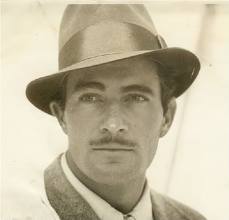

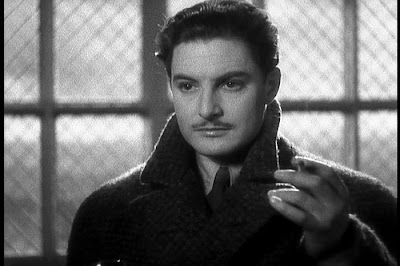
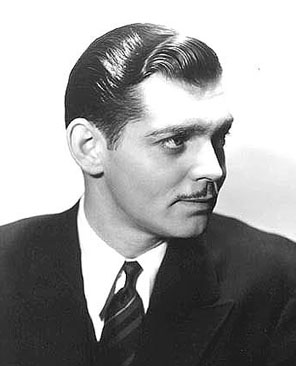

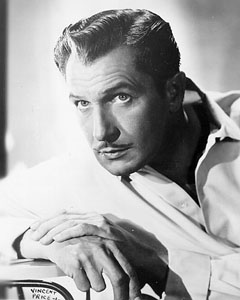

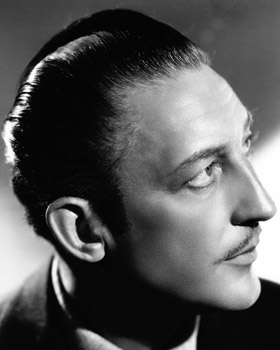
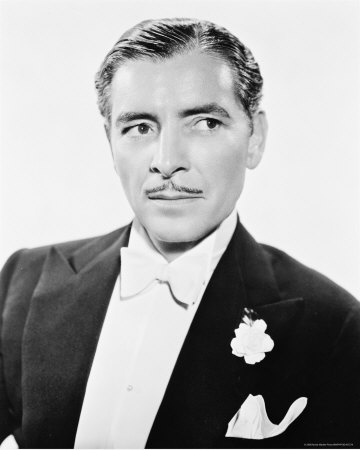
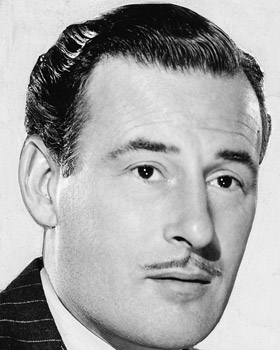



.jpg)




